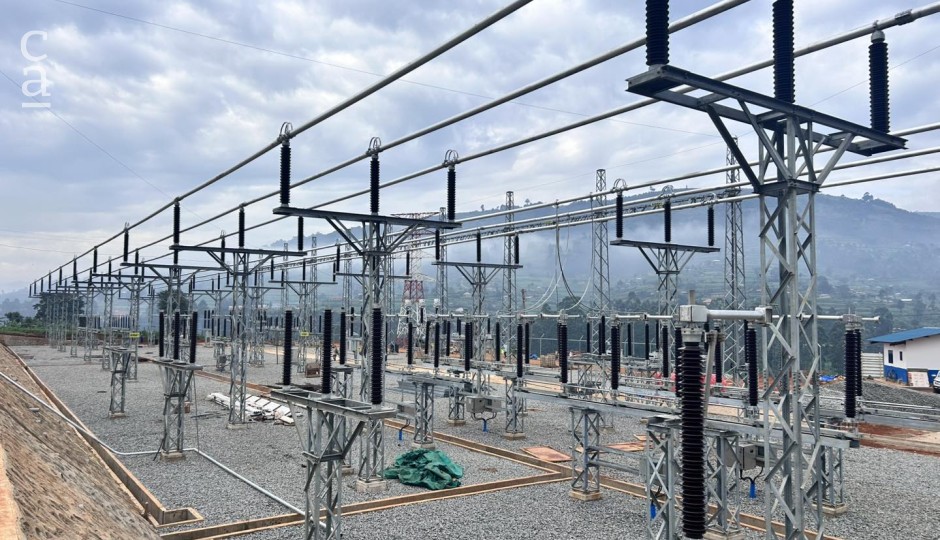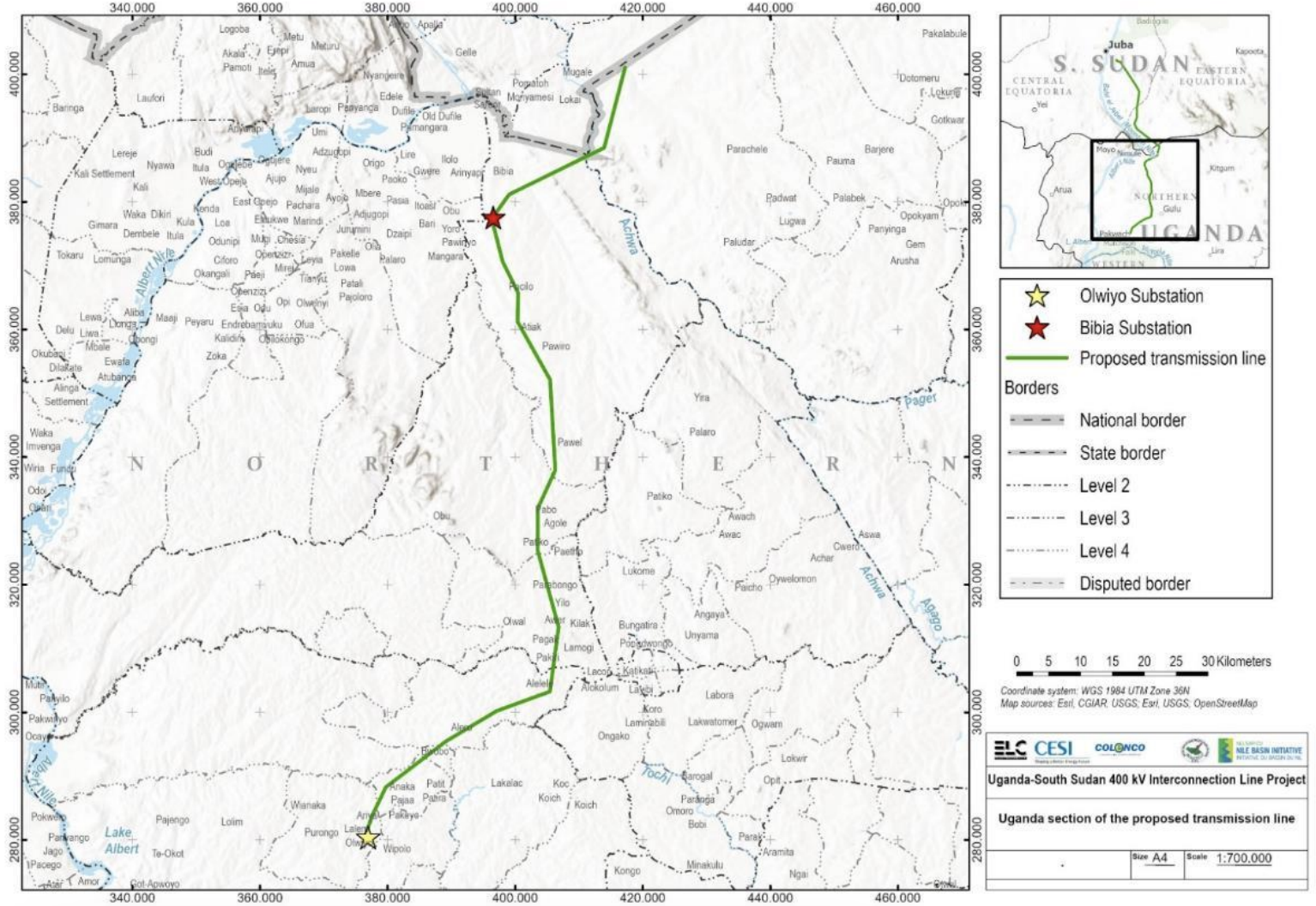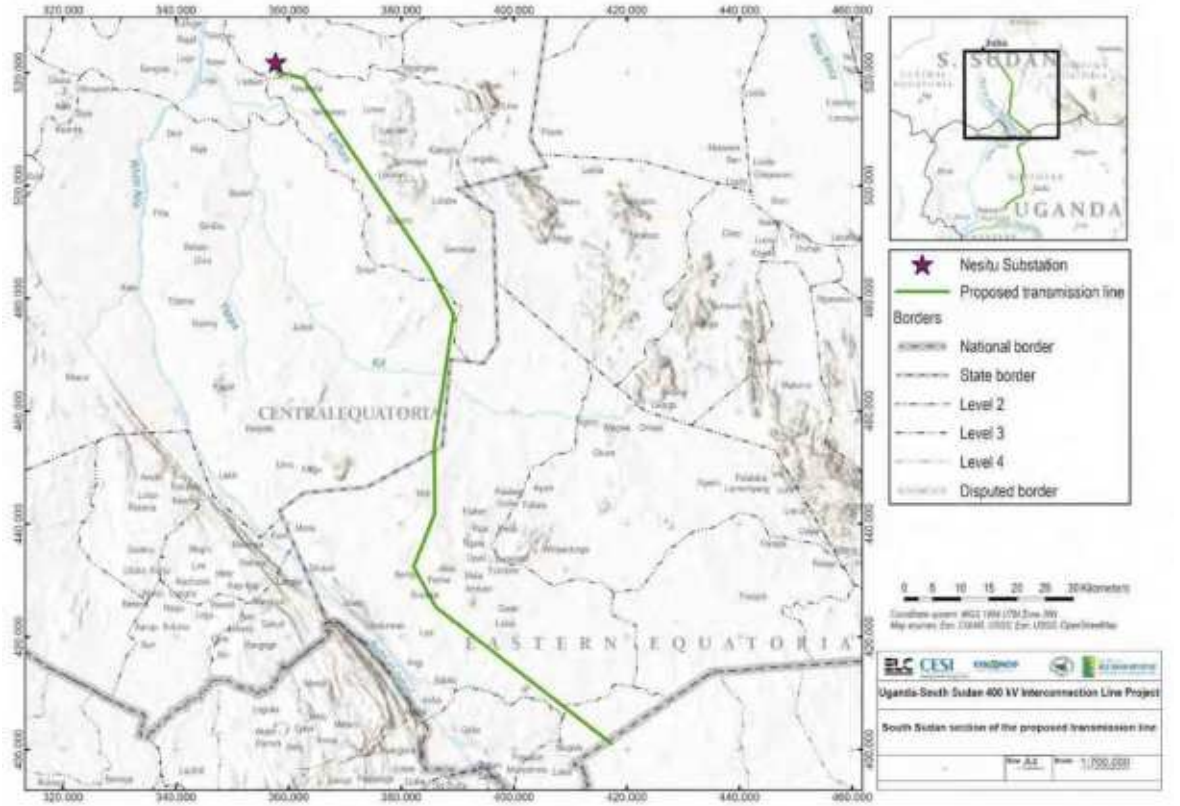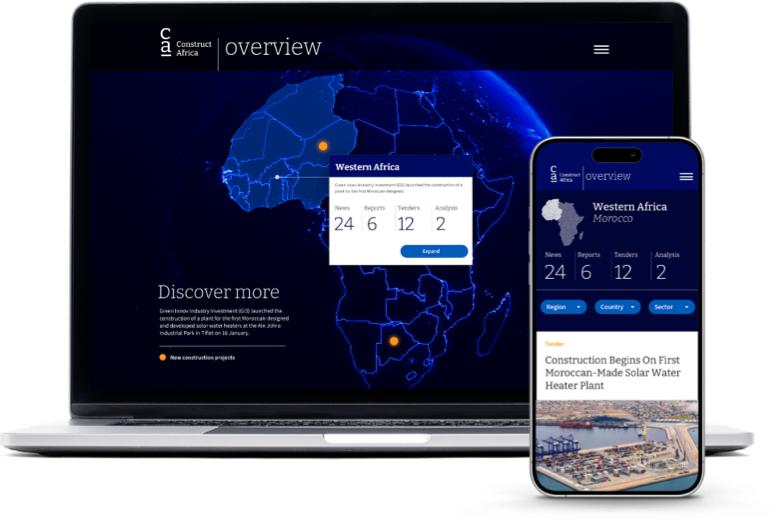Uganda-South Sudan Interconnector Project Planned For 2026
FreeAfDB planning to fund 299km cross-border transmission line.

The African Development Bank (AfDB) is planning to provide financing for the proposed Uganda-South Sudan power interconnector project, planned to run for 299km from Uganda’s northern region to South Sudan’s Equatoria region. The bank published an appraisal report for the scheme in late December.
The 400kV double-circuit line will have a power transfer capacity of 1GW and will run from Uganda’s Olwiyo substation, which is supplied by the Karuma hydropower plant, to the planned metering substation at Bibia near the South Sudan border to the proposed Gumbo substation on the outskirts of the capital city Juba. Work is expected to begin in 2026 and be completed in 2029.
In Uganda, the scope of work involves constructing about 150km of line and a new 400/132/33kV substation at Bibia and integrating the surrounding 33kV network, as well as extending the 400kV Karuma substation and uprating the Olwiyo substation from 132/33kV to 400/132/33kV.

Source: Project ESIA report, August 2024
In South Sudan, the work includes building about 149 km of line and a new 400/132/33kV substation at Gumbo, along with 100km of 33kV lines and 400km of low-voltage reticulations) targeting a total of 1,000 new connections for businesses, social infrastructure and households in Nimule and Juba, and new 33kV lines to interface the existing Juba distribution network to the Gumbo substation. The substation is designed to accommodate a future connection from Ethiopia and transmission to other states in the country, as well as to connect future hydropower facilities.
The interconnector project’s overall objective is to integrate South Sudan to the Eastern Africa Power Pool (EAPP) grid and specifically to address the deficit, reliability and affordability of electricity in South Sudan, which currently relies on thermal power, while providing a market for excess clean energy generated in Uganda.
The proposed project will provide a medium-term prospect of supplying power to the southern parts of South Sudan around Juba. In addition, the project will promote rural electrification in Uganda and South Sudan in the areas connected to the planned Bibia substation.

Source: Project ESIA report, July 2024
Based on Uganda’s generation expansion plan, the interconnector is expected to help meet the country’s demand and security of supply in the long run up to 2045 by providing an avenue for regional imports once South Sudan’s hydropower potential along the River Nile is exploited. In addition, the line could also improve Uganda’s supply once other cross-border interconnections are realised, such as the South Sudan-Ethiopia and South Sudan-Kenya lines.
In the long term, Uganda expects to be able to import cheap hydropower from Ethiopia and South Sudan and avoid the realisation of about 900MW of new thermal generation capacity.
The Uganda-South Sudan interconnector scheme has a total cost of US$259.6 million and is set to be supported by the AfDB and the EU. Work is expected to begin in 2026 and be completed in 2029.
South Sudan Electricity Corporation (SSEC) and Uganda Electricity Transmission Company Limited (UETCL) will be the project executing agencies. According to the project appraisal report, the two countries will jointly recruit a supervision consultant for project supervision, management and implementation in both countries.
In coordination with the Nile Equatorial Lakes Subsidiary Action Programme Coordination Unit (NELSAP-CU), the project coordinator, the consultant will support the executing agencies in the joint recruitment of an EPC contractor for the substation works in the two countries and an EPC contractor for the lines in both countries. The contractors are to sign separate deals with SSEC and UETCL and assign separate teams for works in each country.
The interconnector scheme’s feasibility, environmental and social impact assessment (ESIA) and resettlement action plan (RAP) reports were undertaken by a team of Italy’s Cesi and ELC Electroconsult and Nigeria's Colenco Consulting.
In June 2023, the governments of Uganda and South Sudan signed a power sales agreement (PSA) to facilitate power trading between the two countries. This was preceded by a December 2015 memorandum of understanding (MoU) to build the joint transmission line.
The two countries also collaborate in the power distribution segment, with distribution networks already constructed in the border towns of Nimule and Kaya.
Top photo: Substation in Uganda (Source: Facebook @ UETCL)
Discover
myConstructAfrica
Your one-stop-shop for information and actionable intelligence on the construction and infrastructure pipeline in African countries
- News, analysis and commentary to keep up-to-date with the construction landscape in Africa.
- Industry Reports providing strategic competitive intelligence on construction markets in African countries for analysts and decision-makers.
- Pipeline Platform tracking construction and infrastructure project opportunities across Africa from conception to completion.
- Access to contact details of developers, contractors, and consultants on construction projects in Africa.
- News and analysis on construction in Africa.
- Industry Reports on construction markets in African countries.
- Pipeline platform tracking construction and infrastructure projects in Africa.
- Access to contact details on construction projects in Africa.


